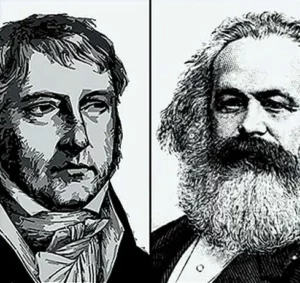
Karl Marx’s last years, when he famously failed to complete all the volumes of Capital, were for a long time viewed as a period of illness and even senescence, even though he was only 64 years old at his death . . .

Karl Marx’s last years, when he famously failed to complete all the volumes of Capital, were for a long time viewed as a period of illness and even senescence, even though he was only 64 years old at his death . . .

Kevin B. Anderson’s1 latest offering, Dialectics of Revolution, brings forward diverse perspectives on the concept of dialectics that have been discussed over the past two centuries. Beginning from Hegel, Anderson extends the discussion to Marx and then further on to . . .

Ferguson lays out the issues, doesn’t hide behind political labels, and advances a sophisticated analysis that crystallizes some contemporary thinking.

With the completion of his biography of Hubert Harrison, Jeffrey B. Perry has made a monumental contribution to our understanding of one of Black history’s most important yet neglected figures. Hubert Henry Harrison (1883-1927) was the first Black figure in the . . .

The collection of essays delivers a relatively cohesive critique of Marx’s ideas and influence—one that is, to my mind, balanced if not always fair.

Linfield’s The Lions’ Den reads like an intervention toward holding back the encouraging tide of pro-Palestinian awareness.

Erich Fromm (1900-1980) was a humanistic psychoanalyst, writer, and activist influenced by the theories of Marx and Freud, though critical of both.

It is widely accepted that the accelerating rivalry between the great powers—the United States, China, the European Union, Russia, and Japan—is a key feature of world politics and will remain so for the foreseeable future. This makes it urgent for . . .

La Botz analyzes the pseudo anti-imperialist character of campism and calls for genuine internationalism of workers against imperialism.

Layan Kayed, who was imprisoned by Israel for her activism, discusses organizing by students and women.

Sultani discusses women’s struggle in Afghanistan, historically and against the Taliban regime today.

The shortcomings of the reproductive rights movement are related to racism within the major reproductive rights groups.

The history of the erosion of Roe v. Wade is marked by misguided and failed movement reliance on electoral politics and legalistic strategy.

The Taliban’s takeover of power after the United States’ brutal twenty-year imperialist occupation is a catastrophe for women not only in Afghanistan but throughout the world.

Schleifer and Fischer make a case for the importance of animal liberation as part of the struggle for socialism.